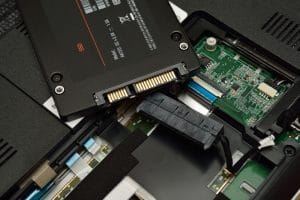6Wresearch has recently published a new report titled “India Solid State Drive Market (2017-2023)” provides in-depth analysis with 44 figures and 8 tables covered in 125 pages. The report estimates and forecast overall India Solid State Drive market revenues & volume by, technology, storage capacity, interface type, and applications. The report also gives the insights on competitive landscape, companies bench-marking, company profiles, market drivers, and restraints.

Over the last three years, storage device market recorded key growth in India. India’s storage device market was predominantly driven by demand for primary storage like DDR4 RAM, and secondary storage such as portable hard disk drives, microSD cards, flash USB, and the fastest growing Solid State Drives (SSDs). Though, SSD market in India is presently at growing stage, however due to price constraint, major demand has been derived from enterprise application segment. For client SSD application, consumers primarily preferred low cost SSDs with 120-256GB capacity.
According to 6Wresearch, India solid state drive market to record $156 million by 2023. Growing demand for high-end computing systems for enterprise segment, growing number of data centers, increasing penetration of on-premise storage system, coupled with proliferation of big data & cloud computing markets are the key driving factors for India SSD market. Presently, Multi-Level Cell (MLC) SSD segment acquired major share in the overall SSD market of India, followed by Single-Level Cell (SLC), and Triple-Level Cell (TLC) segments.
According to Prijo Samuel, Senior Research Analyst, Research and Consulting, 6Wresearch, “SLC & MLC SSDs demand is primarily driven by enterprise application such as large scale enterprises, data center servers, and high performance computing storage. Also, consumers from enterprise SSD segment have started to switch more towards MLC SSDs owing to price concern and advent of 3D NAND’s outclass performance.
In addition, in client application segment, the market is driven by growing demand for SSDs in laptops, desktop PCs, and tablets & phones. Within desktop PCs, 2.5 inch form factor based TLC SSDs registered healthy growth,” Prijo further concluded.
In terms of its interface type, SATA III has overtaken SATA II to be the key growing technology. Similarly, M.2 form factor which is considered as an alternative of mSATA is likely to flourish over the forecast period owing to its capacity to store more data and high speed than mSATA.” He further concluded.
According to Nikunj Shrivastava, Research Associate, Research and Consulting, 6Wresearch, “In client application segment, next-generation motherboards supported the demand for SATA III or SATA 6GB/s interface type of SSDs. Also, M.2 form factor PCIe/ NVMe SSDs demand rose over threefold since 2013.
Additionally, TLC SSDs registered as the top selling consumer grade product in client SSD market, especially for desktop PC application segment. Being cheaper than other SSD technologies, TLC SSDs provide high storage capacity, which is mostly used in consumer grade products. On the contrary, MLC based technology is deployed in enterprise as well as consumer grade products on account of it high capacity and endurance level than the TLC based SSDs.”
Major companies for India Solid State Drive market are ADATA, HP, IBM, Intel, Kingston, Lite-on, Micron, Samsung, SanDisk, Western Digital, Corsair, NetApp, Transcend, and Toshiba.
By Baishakhi Dutta


























